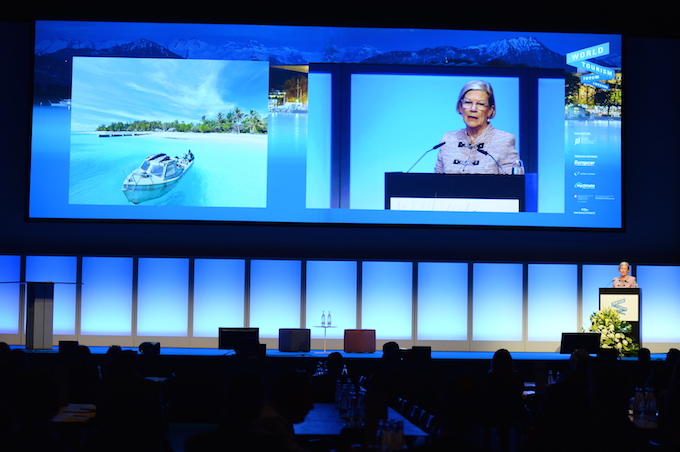Sustainability key to ongoing cruise growth
Sustainability is crucial to the continuing growth of the cruise industry, which needs to “behave as an important sector” according to Ann Sherry, executive chair of cruise line Carnival Australia.
Speaking at the World Tourism Forum in Lucerne earlier this month, Sherry said it wasn’t good enough for “big white ships to just turn up and sail away”.
She added: “I’m aware there are question marks about cruise growth and its contribution to destinations. But fundamentally, there is no growth in any tourism sector unless customers choose your product.”
Sherry said other areas of the travel and tourism industry needed to measure the impact that their activities have had on destinations too.
“We talk about what we do a lot, but we don’t measure what we do. If you can’t measure it, you can’t manage it,” she explained. “The challenge for tourism is to behave as an important economic sector globally, and that means measurement. There aren’t enough figures.”

Ann Sherry addresses thr World Tourism Forum in Lucerne
Sherry said she could demonstrate the benefits of cruising to South Pacific island communities where more tourists arrive by cruise ships than by air, and where local people have built businesses based on the patronage of the cruise industry.
“We are committed to ensuring island communities benefit from tourism,” she said. “The model we developed in the South Pacific is now being developed in other markets and other parts of the world.”
Sherry said many of the communities visited were aid dependent, and the cruise line could demonstrate how communities in Papua New Guinea and the Solomon Islands had been lifted out of poverty and given educational opportunities.
“Sustainable tourism is key to everything we do – we don’t look to be donors but partners,” she said. “We’re committed to minimising the impact ships have on communities, to making sure the environmental impacts are properly mapped and tracked, and to ensuring communities benefit.”




